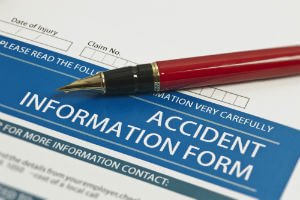 If you are injured in an accident, you will likely communicate with the at-fault party’s insurance company to help settle the matter financially. However, many people are unfamiliar with their rights after an accident and how they should communicate with an insurance adjuster.
If you are injured in an accident, you will likely communicate with the at-fault party’s insurance company to help settle the matter financially. However, many people are unfamiliar with their rights after an accident and how they should communicate with an insurance adjuster.
In this situation, it may be in your best interest to consult with a qualified personal injury lawyer in Fort Worth for help. At Anderson & Cummings, we have helped many accident victims pursue compensation through a personal injury claim. We know how to handle insurance adjusters, and will provide you with a free, no obligation consultation to help you understand your rights during the claims process.
Below, we have provided several tips for you to follow when you are contacted by an insurance adjuster.
Watch What You Say to an Adjuster
Saying the wrong thing to an insurance adjuster can lead to disaster. It can cause your claim to be denied or the amount of compensation you may receive to be reduced.
To protect your claim while speaking with an insurance adjuster, you should consider the following:
- Never accept the first offer – Insurance companies often try to settle personal injury claims as quickly as possible by offering an initial settlement. An adjuster may make you a quick offer, hoping that you will not hire a lawyer and learn the true value of your claim. The value of the claim depends on the types of damages. The first offer is usually a low amount that may not cover every expense.
- Do not apologize – You should never attempt to apologize to the other person after an accident. This may be misconstrued as you accepting fault.
- Avoid opinions – Do not speculate on what may have occurred during your accident. Only tell the adjuster your version of the events as you remember it happening.
What You Should Tell an Adjuster About Your Injury
It is crucial to remain calm and polite when speaking with an insurance adjuster. Only provide him or her with basic facts about your injury. Do not go into too much detail about the type of injury you suffered or the medical treatment you are receiving.
The adjuster may request that you provide additional information about your medical condition or access to your medical records. Instead, inform the adjuster that you suffered an injury during the accident and that you are currently seeking medical treatment.
Furthermore, an adjuster may ask you to provide a recorded statement when he or she first contacts you. It is imperative that you do not go on record with an adjuster until you have consulted with an attorney. He or she will be able to inform you of what you should say to an adjuster, or whether you should make a statement at all. If you make a statement without consulting with an attorney, it could adversely affect your claim.
Understand the Value of Your Claim
All too often, accident victims accept settlement offers made by insurance companies because they do not understand the value of their claim. Before you consider an insurer’s offer, you may want to consider several factors to determine the amount of compensation you may be entitled to receive. This includes:
- The cost of past and future medical treatment due to your injury
- Lost wages as a result of missing work while recovering from your injury
- Cost of rehabilitation, if applicable
- Cost of traveling to and from doctors’ and hospital visits
- Cost medical transportation, such as an ambulance ride
Another factor you may need to consider is whether your injury will have a permanent effect on your ability to earn an income. If so, you may be entitled to compensation for loss of earning capacity. An attorney will consider your age, occupation, relevant skills and experience to determine the amount of income you would have earned if you had not been injured.
Write a Demand Letter
A personal injury lawyer may help prepare a demand letter to the opposing insurance company. This letter should provide a summary of the basic facts about the accident and the resulting injuries. The effective key elements of a demand letter include the following:
- A clear declaration of the facts regarding the accident
- A summary of insurance liability for damages
- A list of out-of-pocket expenses you incurred after the accident
- The total amount of wages you lost due to your inability to work
- Documents and evidence that verify your medical expenses and lost wages
- Basic details about the injuries you suffered
- An amount of money that would adequately compensate you for your financial losses
A skilled personal injury lawyer can assist with preparing your demand letter. He or she will work to ensure your demand letter accurately portrays the losses you suffered as a result of the accident and lists an accurate amount of compensation you need.
Contact Our Team for Qualified Legal Help
If you have been contacted by an insurance adjuster following an accident, it may be in your best interest to contact a trusted attorney as soon as possible.
The accomplished legal team at Anderson & Cummings is qualified to handle many types of personal injury claims. We understand how to work with insurers to obtain fair compensation and will represent your claim at no upfront cost. Do not hesitate to contact us to schedule a free, no obligation consultation.
Call (817) 920-9000 to get started today.